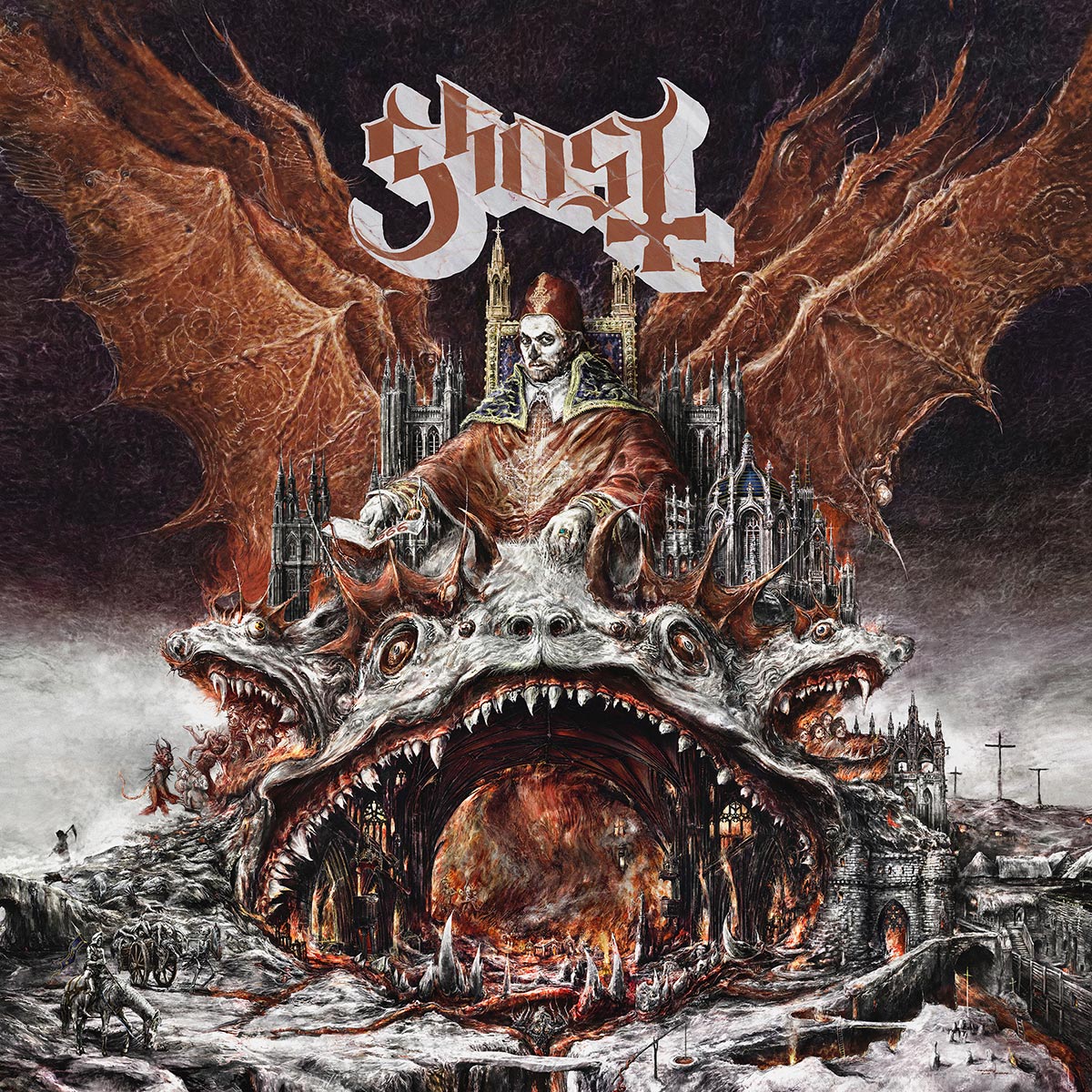Since the release of their first full studio album Opus Eponymous in 2010, Swedish hard rock band Ghost has been climbing high on the alternative metal ladder. Albums such as 2013’s Infestissumam and 2015’s Meliora earned them worldwide success, and even a Grammy for Meliora’s hit single “Cirice.”
Ghost’s alternative image has set them apart in the industry as a devilish novelty. Fans of Mercyful Fate have found life again in this band. Their lyrics weave intricate stories about the occult and a fantastical character portrayed by lead singer Tobias Forge named Papa Emeritus, who is accompanied by his anonymous Nameless Ghouls. In each album thus far, Papa has been “reincarnated” and appears with a new image and slightly different sound. Prequelle marks a turning point, in which Ghost’s narrative has killed off Papa Emeritus, and Cardinal Copia has taken his place. So far, the Cardinal shows promise, but he has yet to live up to his predecessors.
The band’s identities had remained mostly a secret until the past year. Recently, there have been some unfortunate legal battles regarding Tobias Forge and the former Nameless Ghouls. In 2017, the ex-Ghouls revealed their identities and filed lawsuits against Forge, claiming he cheated them out of profits between 2011 and 2016. In light of this controversy, fans were shocked and pleasantly surprised when Ghost announced the upcoming release of a new full-fledged studio album, if a little skeptical.
In addition to a new set of ghouls, Prequelle features three singles: “Rats,” “Faith,” and “Dance Macabre.” Metaphorical themes surrounding the black plague are consistent throughout the album, and there seem to be a few moments where the album’s lyrics are clearly pointed at the ex-Ghouls. In the chorus of “See the Light,” Cardinal Copia sings out “Every day that you feed me with hate I grow stronger.”
The transitions in-between major tracks still retain the same theatrical quality as in previous albums. Giant pipe organs sound off after “Faith” and provide the pause needed before transitioning into a slower song like “See the Light.”
Ghost is known for their short, atmospheric quips, but this is the first album of theirs to feature two full-length, instrumental-only tracks. Both “Miasma” and “Helvetesfönster” force the listener to take a break from the lyrics and focus on their new sound, which is definitely a departure from previous albums. It incorporates some classic ‘80s rock, including fuzzy synths and even a sassy saxophone solo at the end of “Miasma,” which is one of the album’s few saving graces.
Despite all of the discernible strong points in the album, Prequelle can easily be considered their weakest release since Opus Eponymous. The singles are the only engaging tracks, which leaves the rest of the album feeling dry and forgettable.
Although the decision to include instrumentals “Miasma” and “Helvetesfönster” was a bold one, it may not have been the best move. On Prequelle, Ghost seem too focused on sounding different than they did on previous albums, and forget what made fans fall in love with them in the first place. Though present at times, their core concept — the diabolical nature of the band — seems to be lacking here. Instead, we receive an echo of what they’ve already presented to us in previous years.
In the past, Ghost have structured their albums with calculated expertise. They managed to hold a listener’s interest the whole way through. Prequelle wastes all its decent tracks in the first half, dooming the final 20 minutes to straight filler. It is possible that Prequelle may have thrived as an EP. If Ghost had released all the singles of this album as a smaller, stronger collection, it could have been the stepping stone they needed while they waited for the lawsuit controversy to die down.
All in all, Prequelle could have been way worse, but it leaves fans itching for a sequelle that’s a little less style over substance.


